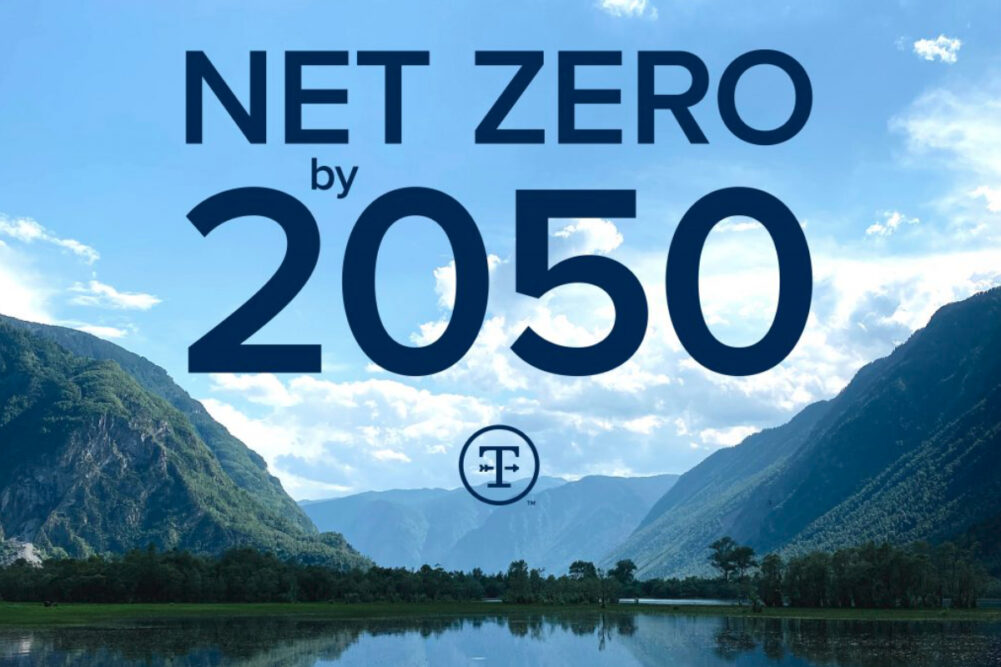SPRINGDALE, ARK. — Tyson Foods, Inc. has announced its goal to achieve net-zero greenhouse gas (GHG) emissions across its global operations and supply chain by 2050. The plan was released alongside the company’s 2020 (FY20) Sustainability Progress Report.
“At Tyson Foods, we believe progress requires accountability and transparency and we are proud to exemplify that as we work to achieve net-zero greenhouse gas emissions by 2050,” said John R. Tyson, chief sustainability officer, Tyson Foods. “As the first US-based protein company in the food and beverage sector to have an emissions reduction target approved by the Science Based Targets initiative, we hope to continue to push the industry as a leader and remain committed to making a positive impact on our planet, with our team members, consumers and customers, and in the communities we serve.”
The company’s original goal was to reduce GHG emissions 30% by 2030. With the urgency to combat climate change growing, Tyson has adjusted its target to net-zero by 2050. Tyson has 239 facilities and 139,000 employees worldwide. Achieving this new goal will take a collective effort by every employee and Tyson operation, in addition its entire supply chain, the company said.
“We believe what good food can do for people and the planet is powerful,” said Donnie King, president and chief executive officer. “Our net-zero ambition is another important step in our work toward realizing our aspiration to become the most transparent and sustainable food company in the world. Partnership and collaboration will be critical to our efforts, and we look forward to working with our customers, supply chain partners, and other stakeholders to achieve net zero.”
Steps the company will take to help meet the goal include:
- Updating the baseline for emissions to align with limiting global temperature rise to 1.5˚C, consistent with the Paris Agreement, by the end of 2023.
- Establishing a pathway to using 50% renewable energy across its domestic operations by 2030.
- Completing initial land stewardship target of engaging 2 million feed acres and expanding the total acres by 2025, including a total target of 100% of feed purchased by 2030.
- Expanding the company’s current 5 million acre grazing lands target for sustainable beef production practices by 2025.
- Continuing work to eliminate deforestation risk throughout its global supply chain by 2030.
- Supporting climate action policies through advocacy groups such as the Net Zero Business Alliance.
Tyson’s FY2020 Sustainability Progress Report outlines its plans to achieve this new GHG emissions goal in addition to detailing its integrated approach to sustainability across all of its operations. The report is divided into three pillars: Empowering People, Customers and Communities; Conserving Natural Resources and Protecting Our Planet; and Innovating Smart, Responsible Agriculture. Every employee is charged with being accountable for these goals and for helping to make change throughout the company.
Some sustainability achievements from FY2020 included in the report:
Empowering People, Customers and Communities
- The addition of a chief medical officer to the company.
- Offering English as a Second Language (ESL) courses and financial literacy and citizenship classes across 59 plants.
- Introduced the Upward Pathways program, which helps create opportunities for and encourage upward mobility for employees.
- Donated 31 million lbs (124 million meals) in one year; more than ever before.
Conserving Natural Resources and Protecting Our Planet
- Changed the packaging of the Jimmy Dean brand from virgin fiber paperboard to 100% post-consumer recycled (PCR) content.
- Launched zero waste to landfill pilot projects at three production facilities and diverted nearly 5.2 million lbs of waste from landfills, a 60% increase from 2019.
Innovating Smart, Responsible Agriculture
- Became the first US food company to announce work to verify sustainable production practices in beef supply chain.
- Developed and publicly released a Forest Protection Standard outlining steps to continue minimizing deforestation risk and protect the forests in the 6% of the company’s land footprint.
- Became the first company to receive third-party certification by the Professional Animal Auditor Certification Organization (PAACO) for all poultry audits within FarmCheck audit program.
For more information on the Sustainability Progress Report, go to Tyson’s Environmental, Social and Governance (ESG) hub. More information on the company’s net-zero emissions plan can be found here.





